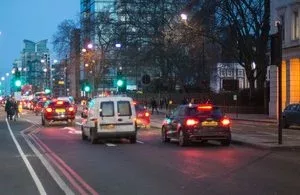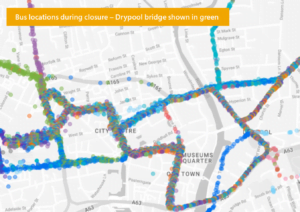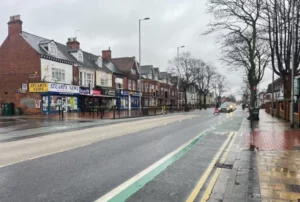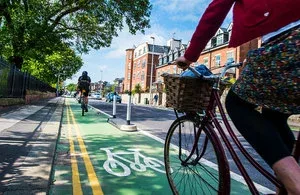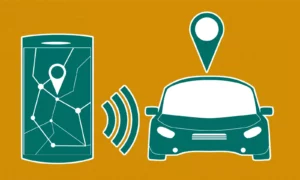The Government of Ireland has launched a new National Demand Management Strategy aimed at reducing congestion in the country’s cities and towns.
Strategy will take a year to complete and will develop future plans to free up road space in urban areas first to accommodate better public transport and active travel
Minister for Transport Eamon Ryan has today brought a Memorandum of Information to Government on the development of a new National Demand Management Strategy which aims to reduce congestion in our towns and cities, improve air quality, and provide more and safer space for public transport, walking and cycling.
The Strategy, which is outlined as a key action in Climate Action Plan 2023, will take a year to complete and will involve widespread public consultation to engage and inform citizens of the transformative changes that are already taking place to improve and enhance public transport and then, to explain the concepts behind and benefits of freeing up our road and public spaces. Its overarching, longer-term aim, as set out in the Climate Plan, is to support a 20% reduction in vehicle kilometres travelled by 2030.
Government fully recognises that any demand management measures being considered, such as road space reallocation, car-free zones and user charging will only be effective and equitable when alternative, public transport options are readily available, both in urban and rural areas.
In the Memorandum, the Minister has signalled his intention to establish an inter-departmental/agency group to steer development of the high-level strategy (Steering Group). The work of this group will take a ‘Cities First’ approach so that the primary focus will be on reducing congestion in cities and urban areas first. In addition, there will be a number of sub-groups of the Steering Group including one that will consider any potential impacts on rural communities, mindful that people in rural areas may be more dependent on cars and have less access to public transport.
Minister Ryan said: “Traffic congestion continues to clog our roads in our towns and cities. It causes stress. It slows us down and makes us late. It makes it more difficult for buses to run on time. It’s polluting, it’s noisy and it’s often dangerous for walkers and cyclists. In other words, the system we have now isn’t working for people.
“Less traffic congestion, on the other hand, means less stress and more time. It also means improved air quality, more people friendly urban centres and the potential for greater fitness and health through improved active travel.
“Demand management in transport is all about improving the efficiency of the existing transportation system, by reducing travel demand rather than increasing capacity. Our transport system at the moment is overly dependent on cars which is leading to daily traffic chaos and lower quality of life, particularly in our cities. As our population grows, these pressures are only going to increase unless we intervene now to reduce our reliance on cars and put in place the systems and road space needed for people to choose quality public transport or active travel.”
The Demand Management Strategy will complement an extensive range of supports being provided by Government to help halve our transport emissions by 2030, including incentives and investment to support a large-scale transition to electric vehicles, increased penetration of biofuels in the fuel-mix, and unprecedented levels of funding in active and public transport infrastructure and services.
The Department of Transport is also developing a Climate Action and Sustainable Mobility Public Engagement and Communications Strategy, which will communicate government measures and policies to support the changes needed to transform the transport system, as well as motivating individuals to make a shift in how they travel. The first elements of this will roll out this summer.
However, these supports alone will not be enough to achieve our emissions targets or address gridlock, safety or air quality issues in our cities and towns, hence the need for the demand management strategy to support the 20% reduction in car kilometres and the corresponding switch to public transport and active travel.
It will:
- support just transition by encouraging the alignment of demand management measures with other planned measures, such as public transport service enhancements in urban and rural areas, new active travel infrastructure, the Safe Routes to Schools Programme and supports for shared mobility facilities and services
- provide a roadmap, consisting of a set of guiding principles, that will define the type of measures that may be deployed at a local level
- take account of people with additional mobility needs, ensuring the same or better access to towns and services
- ensure our road networks can appropriately and efficiently support the movement of goods and people, particularly public transport services, and ongoing national and regional economic development.



